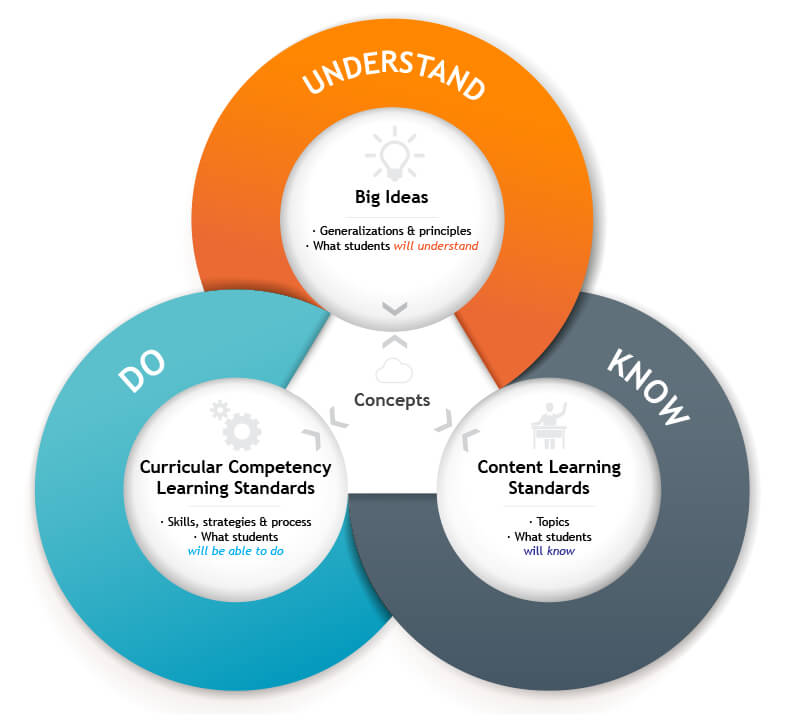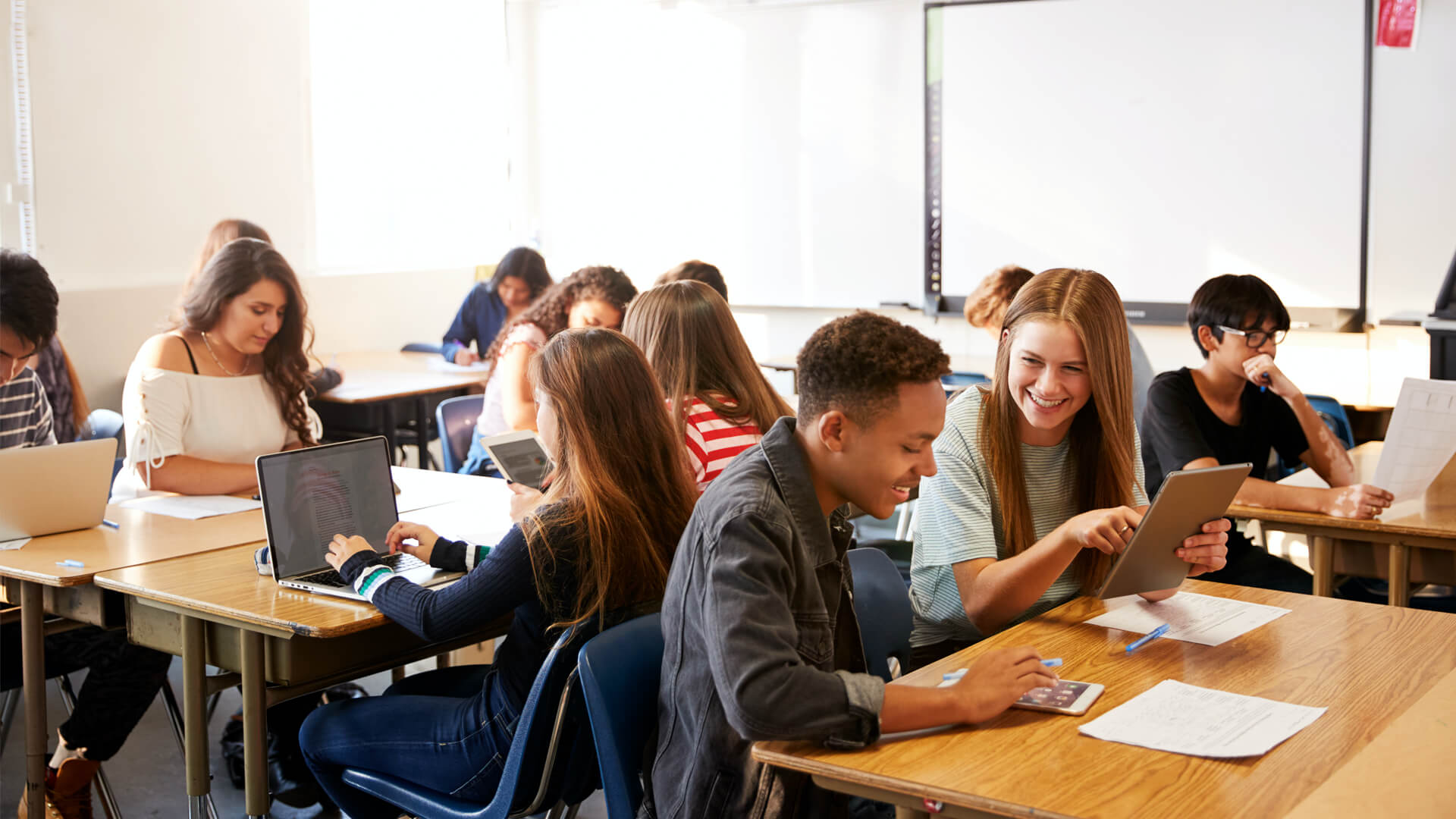BC’s Curriculum
At the heart of BC’s Curriculum are the Core Competencies, essential learning, as well as literacy and numeracy foundations. All three features contribute to deeper learning.
Core Competencies underpin the curricular competencies in all areas of learning. They are related to the educated citizen and as such are what we value for all students in the system.
The curriculum for each subject area includes the essential learning for students, which represents society’s aspirations for B.C.’s educated citizen. The curriculum develops around key content, concepts, skills and big ideas that foster the higher-order thinking demanded in today’s world.
Literacy is the ability to understand, critically analyze, and create various forms of communication in order to accomplish one’s goals. This includes oral, written, visual, digital and multimedia.
Numeracy is the ability to understand and apply mathematical concepts, processes, and skills to solve problems in a variety of contexts.
Literacy and numeracy are fundamental to all learning. While they are commonly associated with language learning and mathematics, literacy and numeracy are applied in all areas of learning in BC’s Curriculum.
All areas of learning are based on a “Know-Do-Understand” model to support a concept-based competency-driven approach to learning.
Three elements, the Content (Know), Curricular Competencies (Do), and Big Ideas (Understand) all work together to support deeper learning.

BC’s Curriculum brings together two features that most educators agree are essential to fostering deeper, more transferable learning in the 21st century: a concept-based approach to learning and a focus on the development of competencies. These approaches complement each other because of their common focus on the active engagement of students. Deeper learning is better achieved through “doing” than through passive listening or reading. Similarly, both concept-based learning and the development of competencies engage students in authentic tasks that connect learning to the real world.

